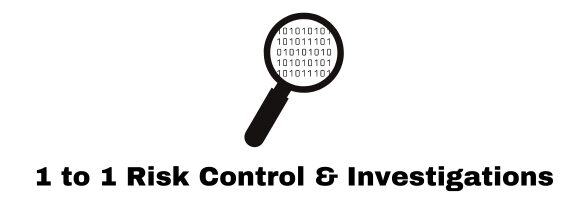405-458-5710
Confidentiality Guaranteed
405-458-5710
Confidentiality Guaranteed
You are Reading:
-
1 to 1 Risk Control & Investigations > Blog > Uncategorized > Understanding Perception and Perspective

Jul
Understanding Perception and Perspective
The Nature of Perception: As private investigators, perception is the cornerstone of our work. Perception involves interpreting and organizing sensory information to make sense of the world around us. It is not just a passive reception of data but an active process influenced by various factors, including past experiences, cultural background, and personal biases. Recognizing these influences is crucial for accurate observations and interpretations.
Role of Sensory Input: Our senses play a critical role in perception. Sight, sound, touch, taste, and smell provide the raw data that our brains process. In an investigation, the interpretation of these sensory inputs can vary greatly among individuals. For example, two investigators may perceive the same scene differently based on their focus, prior knowledge, and emotional state. Training and experience help refine our sensory input processing for more accurate results.
Influence of Past Experiences: Past experiences significantly shape our perception. Memories and previous encounters influence how we interpret new information. For instance, if an investigator has had negative experiences with certain environments, they may perceive similar settings with heightened suspicion. Understanding how past experiences affect perception can help investigators remain objective and avoid biases.
Cultural Background and Perception: Culture deeply affects perception. Cultural norms, values, and traditions shape how we view the world. In investigations, gestures and body language can have different meanings across cultures, leading to varied interpretations of the same action. For example, a gesture that is considered friendly in one culture might be seen as offensive in another. Being culturally aware is essential for accurately interpreting behaviors and avoiding misunderstandings.
Personal Biases and Perception: Biases, whether conscious or unconscious, play a critical role in shaping perception. Personal beliefs, prejudices, and stereotypes can distort the way we see and interpret events and people. For private investigators, being aware of our biases is the first step in mitigating their impact on our work. Regular training and self-reflection can help in identifying and addressing these biases.
The Concept of Perspective: Perspective refers to the angle or viewpoint from which an individual observes and interprets a situation. It encompasses the broader context of one’s environment, experiences, and mindset. In investigations, perspective influences not only what we see but also how we understand and react to what we see. Different cases require different perspectives to uncover the truth.
Empathy and Perspective-Taking: Empathy involves understanding and sharing the feelings of others. Perspective-taking is a key component of empathy, requiring us to step into someone else’s shoes and view the world from their vantage point. For private investigators, this skill enhances our ability to connect with clients, witnesses, and even suspects, helping to resolve conflicts and gather more comprehensive information.
The Power of Diverse Perspectives: Embracing diverse perspectives enriches our understanding of complex cases. Different viewpoints offer unique insights and solutions that may not be apparent from a single perspective. Encouraging diversity in thought and experience within investigative teams can lead to more innovative and effective problem-solving.
Perspective in Communication: Effective communication relies on understanding and acknowledging different perspectives. Misunderstandings often arise when we assume that others share our viewpoint. In investigations, active listening, asking clarifying questions, and being open to differing opinions are crucial for gathering accurate information and understanding the full context of a case.
Perspective in Decision-Making: In decision-making, considering multiple perspectives can lead to better outcomes. It allows for a more comprehensive evaluation of options and potential consequences. Investigators who value and seek diverse perspectives are more likely to make informed and balanced decisions that benefit their clients.
Challenges in Perspective-Taking: Perspective-taking is not always easy. It requires humility, curiosity, and a willingness to be vulnerable. Overcoming the tendency to prioritize our own viewpoint takes conscious effort and practice. Recognizing the limitations of our perspective is a critical step in this process, especially in complex investigations.
Perspective in Conflict Resolution: In conflicts, understanding the other party’s perspective is essential for finding common ground and reaching amicable solutions. It helps de-escalate tensions and promotes mutual respect. Mediation and negotiation strategies often emphasize the importance of perspective-taking, which is a valuable skill for private investigators dealing with contentious situations.
Developing Perspective-Taking Skills: Developing the skill of perspective-taking involves several practices. These include active listening, mindfulness, engaging with diverse groups, and reflecting on our own experiences and biases. Continuous learning and self-awareness are key components of this development for private investigators, enhancing our ability to handle various cases effectively.
Perspective in Creativity and Innovation: Creativity and innovation thrive on diverse perspectives. Exposure to different ways of thinking can spark new ideas and approaches in investigations. Agencies that cultivate an environment where diverse perspectives are valued tend to be more innovative and adaptive, leading to more successful outcomes in complex cases.
Understanding perception and perspective is fundamental to effective private investigation. It influences how we interpret information, interact with clients, and make decisions. By being mindful of the factors that shape our perception and actively seeking diverse perspectives, private investigators can enhance empathy, communication, and problem-solving abilities. Embracing this understanding leads to more accurate investigations and fosters a more inclusive and collaborative investigative environment.
- AI
- Bug Sweeps
- Car Security
- Cyber Crime
- Cyber-Stalking
- Digital Forensics
- Fraud
- Geo-Political
- GPS Tracking
- Hidden Cameras
- Identity Theft
- Investigations
- Misinformation
- Mobile Device Forensics
- Mobile Device Security
- Operational Security
- Privacy
- Psychology
- Situational Awareness
- Social Media Investigations
- Stalking
- Surveillance
- Uncategorized
